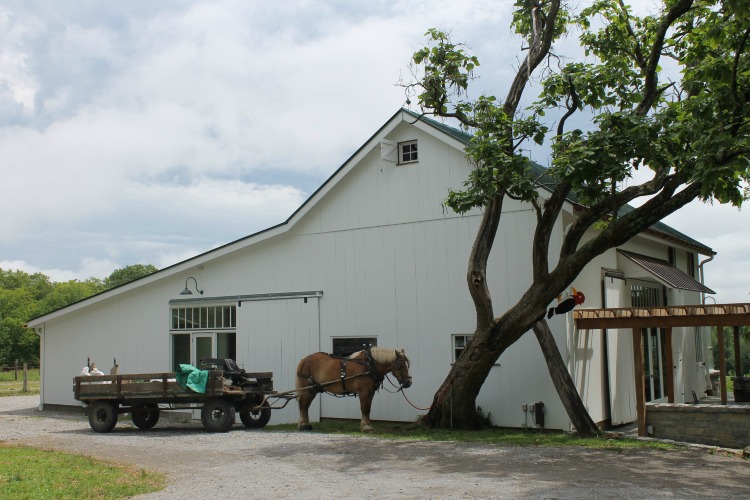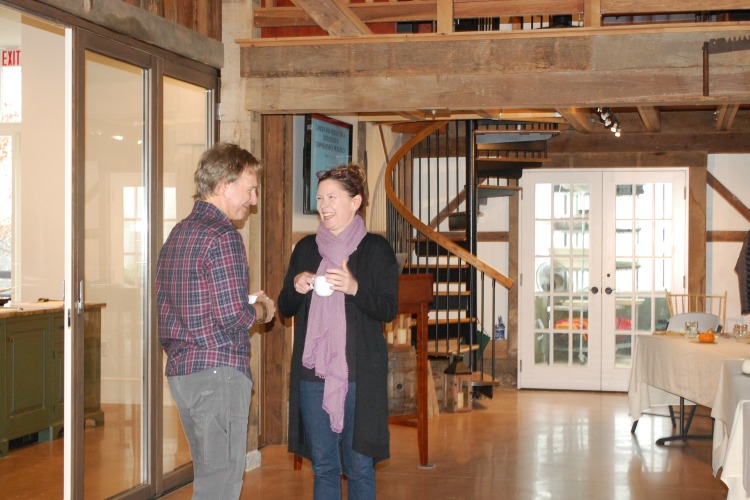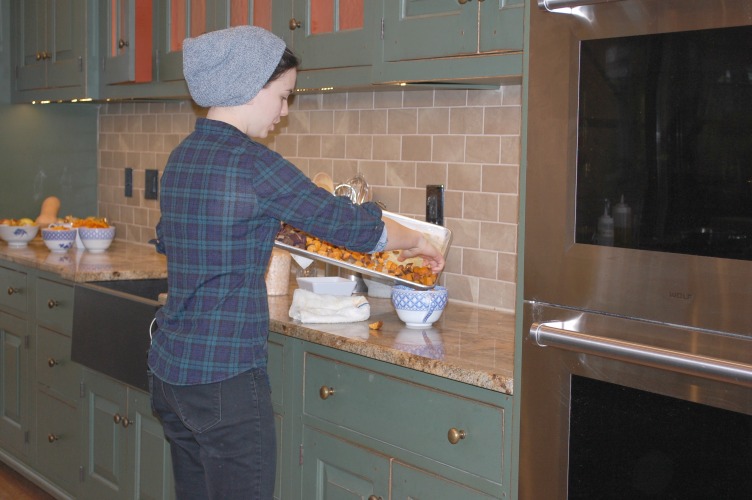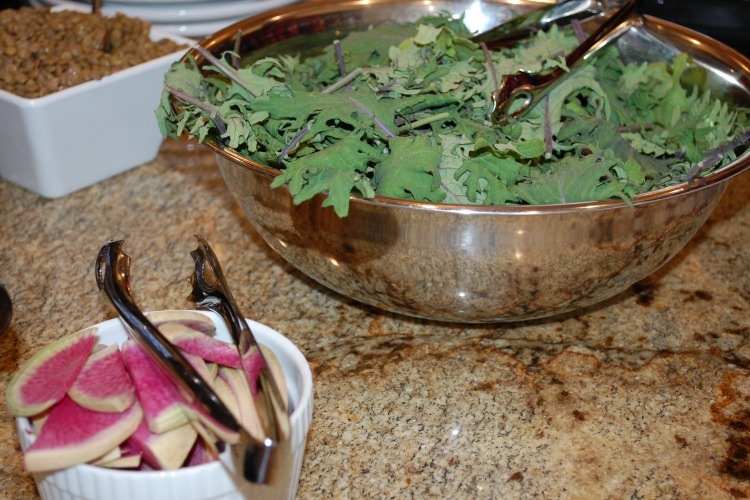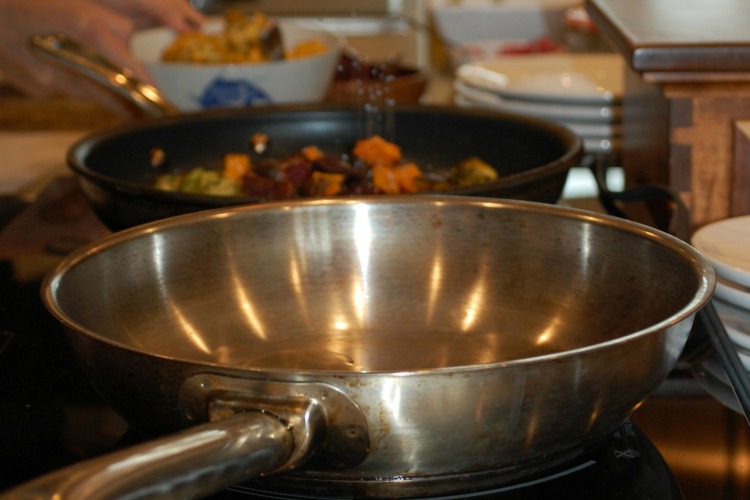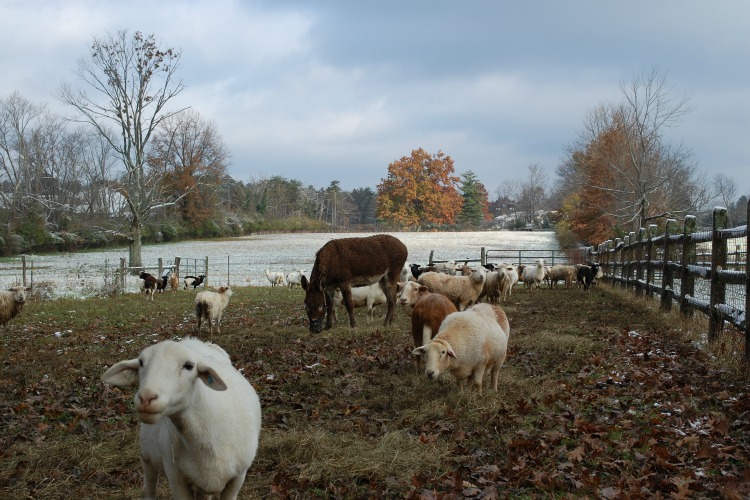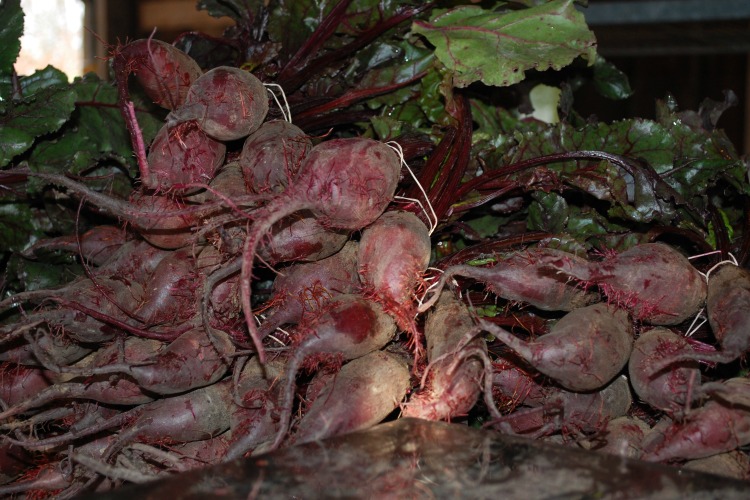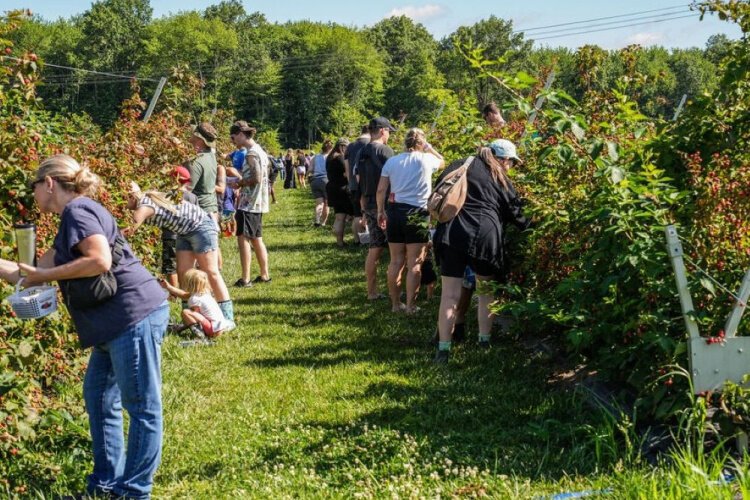Old-school practices meet modern-day amenities
The Teaching Kitchen at Turner Farm demonstrates the basics of health and wellness.
From the outside, Turner Farm’s century-old two-story barn that houses their Teaching Kitchen looks small, but the carefully appointed, updated space is half classroom, half kitchen built, in-part, with guidance from the Culinary Institute of America.
A long prep island that was once a space for tractors to move in and out of the barn now has eight inlaid electric stoves, and the kitchen’s storage space used to hold sheep in preparation for sheering.
The renovated building opened in 2016 and includes the state-of-the art equipment necessary to create wholesome, healthy meals using fresh produce grown on the farm, while the adjacent teaching area has room for 50 students.
Chef and culinary manager Stephanie Michalak, a graduate of both the CIA in New York and NYU’s Steinhardt School of Culture, Education and Human Development, oversees this modern culinary oasis tucked among the 200-year-old farm’s stables, sheep, pastures and greenhouses, and guides people through everything from pie and pasta making to fermentation basics.
Michalak explains that teaching kitchens came about when Dr. David Eisenberg with the Harvard T.H. Chan School of Public Health collaborated with the CIA to create a conference called “Healthy Kitchens, Healthy Lives,” connecting both medical and culinary professionals in order to explore the idea of food as medicine.
This was the precursor to the Teaching Kitchen Collaborative (TKC), but, as she says, this has been a movement long before the TKC formed in 2015.
“Obviously plenty of other teaching kitchens across the country and globe have their own story,” she says. “Most of it’s coming to terms with globalization and public health crises.”
“The Teaching Kitchen Collaborative, it’s a lot about trying to really push delicious food that happens to be healthy,” she continues. “It should make you feel good but you should also feel good eating it, and that can be from a social, mental, physiological standpoint because food is multifaceted.”
In keeping with these philosophies, the farm frequently partners with the University of Cincinnati Center for Integrative Health and Wellness to encourage healthy, sustainable, and often organic nutrition as a way to enhance both physical and mental health.
In one such class, Cancer-Resilient Cooking and Lifestyle with UC oncologist Dr. John Sacco, participants learn about foods that are linked to disease, as well as guidelines for what to eat to optimize health and wellness.
“It’s great to survive, but why not take it one step further and thrive,” he begins.
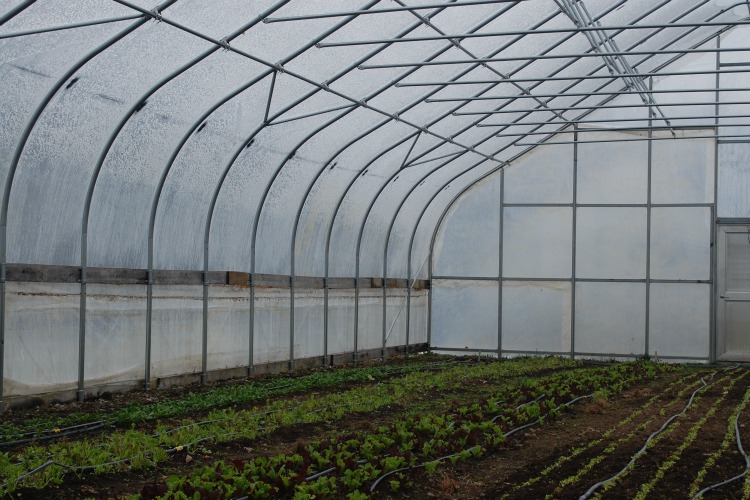
While the teaching kitchen wasn’t yet in the works when owner Mary Elizabeth “Bonnie” Mitsui returned to Meshewa Farms after traveling abroad, it is in line with her desire to preserve the land and educate the community.
In the 1990s, she bought the neighboring property, joined the two together, and named it Turner Farm with the idea to expand her organic growing practices.
“She was a pioneer in a lot of ways here in the Cincinnati area,” says Rob Lewis, who serves as both the veteran to farmer training program manager and the marketing and media relations manager on the farm. He also lives in the old caretaker house, a Sears Craftsman with pristine views of the horses and sheep.
“There weren’t a lot of organic growers,” he says, “or people were growing that way but weren’t certified — so she had a vision to … preserve all of this, the woods and the farmland here for all time to keep it from being developed, but also to enrich the area with a traditional, working farm that would be open to the public.”
“She wanted people to see the source of their food,” he says.
Turner Farm is one of three working farms left in Indian Hill, and everything they grow and raise — from certified organic produce to grass-fed meat — is available either for purchase in the farm’s market, open Monday through Saturday from 8:30 a.m. until dusk, or by ordering online. There also are vegetable and flower CSAs throughout the year.
Mitsui’s goals were beyond personal sustainability, though. Her hope was to turn the farm into an educational nonprofit, and she helped train many area farmers before her death in 2013.
She achieved this through various programs on the farm that teach people of all ages and backgrounds about sustainability and organic practices, like summer camps where kids milk, harvest, and plant, and the veterans to farmer training program, which helps military personnel transition into careers in agriculture.
“Almost all of the employees on the garden side were interns,” says Lewis, who was once one as well.
The “garden side” includes a variety of greenhouses set to different climate zones to keep certain foods growing year-round.
“A lot of these vegetables taste better in the wintertime, kale especially, carrots and beets, all those vegetables do really well because the part that we eat is their store of sugar, and that’s what protects them from the cold,” says Lewis. “When it’s hot, kale doesn’t taste that good because it doesn’t need to make any sugar. And beets and carrots are all the same way.”
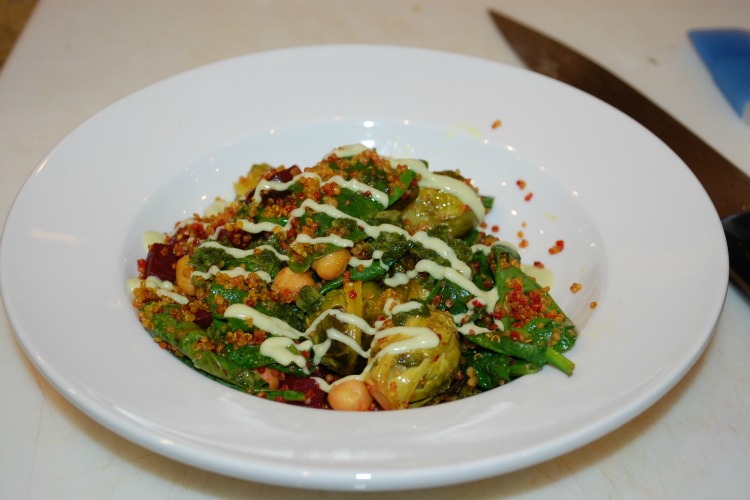
Back in the teaching kitchen, Dr. Sacco’s refers to the Standard American Diet (which he calls SAD) during his presentation, and encourages advice we’ve all heard before: more produce, less processed food, limited red meat and dairy, and preferably only grass-fed organic meat and low-fat organic dairy.
Lunch after the lecture is simple, colorful, and nutritious grain bowls with farm-fresh winter vegetables and other ingredients prepped by Michalak before the class.
Students pair up at stoves, heat some oil with a bit of turmeric until it’s aromatic, and add precooked grains (like quinoa or local wheat berries), their choice of vegetables, and a variety of toppings including pickled onions, chick peas, or Michalak’s simple avocado dressing, which involves processing ripe avocados with some water, salt, pepper, and lemon or lime juice. This can be stored in an airtight container for up to one week.
While eating, students ask questions and revisit the parts of the lecture.
What’s refreshing, in this setting, is that no one is shamed for their comments or queries, like challenging Dr. Sacco’s support of soy (best eaten two to three times a week in its whole form, organic and sprouted), admitting to sugar addictions (easily tempered with slivers of high-quality dark chocolate, according to Michalak), or for touting the latest in supplements (research-brand curcumin only, as most vitamins can’t begin to replicate the benefits of whole foods, says Sacco, the same way one singer does not make a chorus).
Sacco responds to each of these questions in kind, and, at one point, even admits to following up his kale salad at lunch with a small order of fries from Five Guys.
The key, he says, is balance: eating healthy, organic foods whenever possible, getting 150 minutes of combined aerobic and resistance training in per week, and logging enough sleep all work together to keep the body out of a state of chronic stress, which suppresses the immune system.
“Exposure to light at night increases breast cancer risk,” says Sacco, which he attributes to possible melatonin suppression. Chronic stress also has been linked to cancer, either as a cause of the disease or for its role in preventing the body from fighting to stay healthy.
“In your internal health system,” he says, “the waters need to stay pristine upstream to keep them clean downstream.”
This all correlates with Turner Farm’s ultimate mission, according to Lewis: “To continue the stewardship of the land/stewardship of the body philosophy that we espouse with the farm and teaching kitchen.”
The Turner Farm Teaching Kitchen hosts regular classes and events, and also is available for private bookings. To view the upcoming schedule or register for classes, click here.

